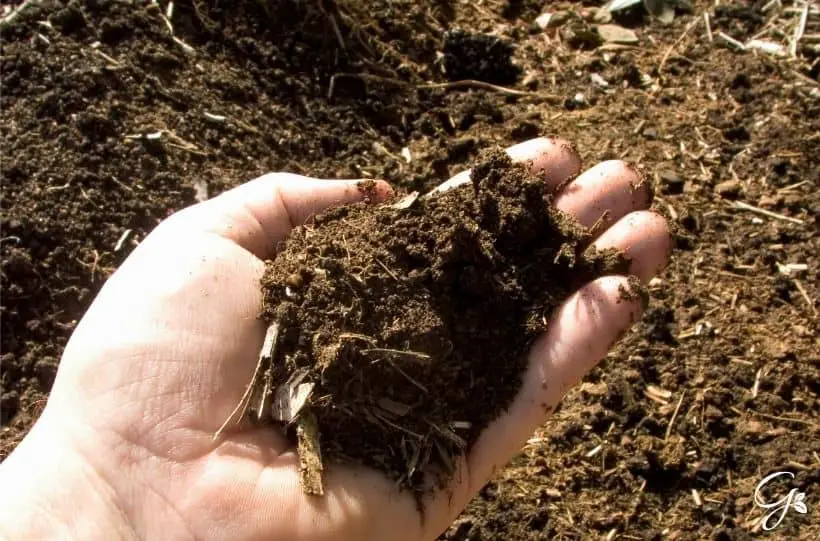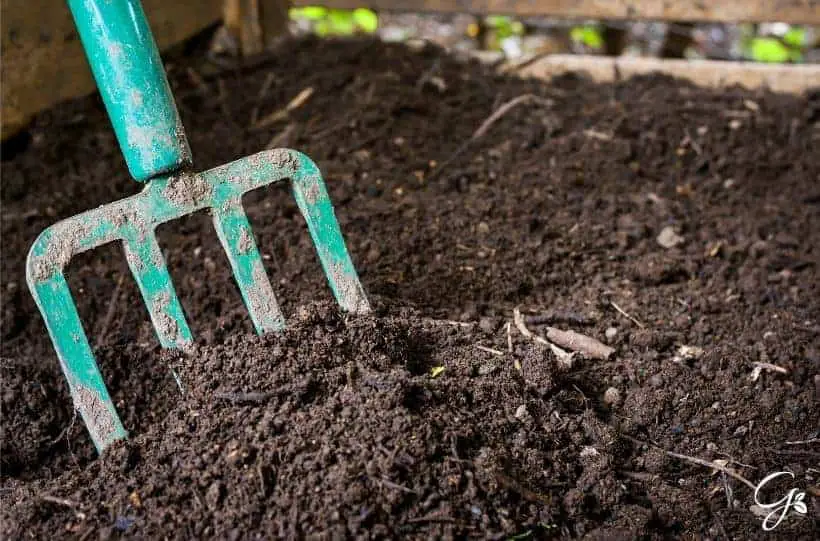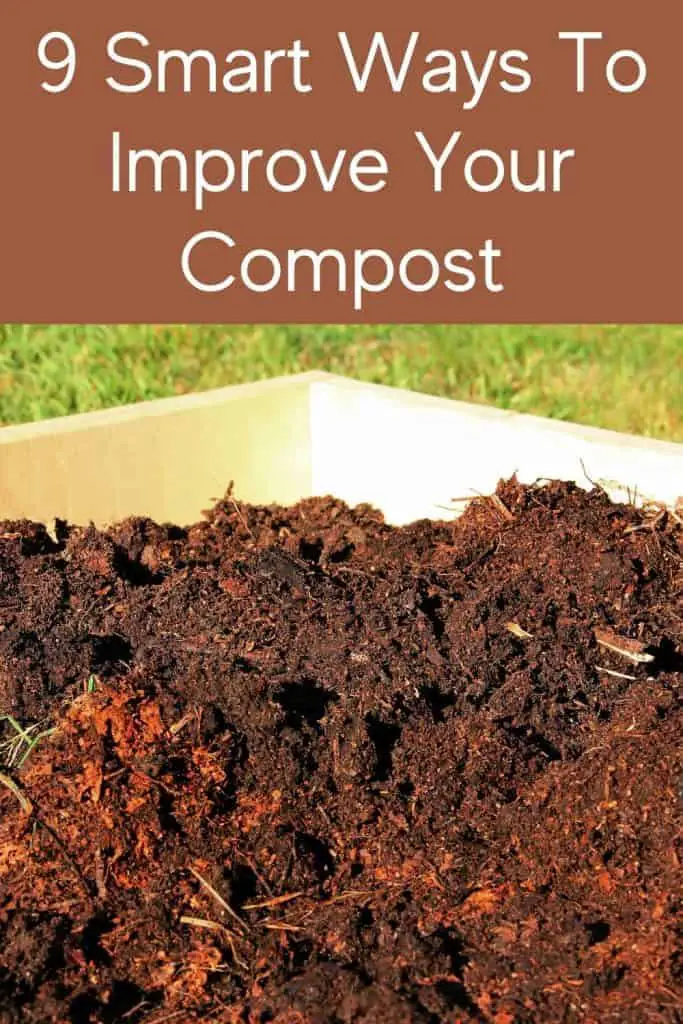How To Improve Your Garden Compost
Compost is one of the most valuable tools for your garden. It can bring life back into overworked soil, act as a fertilizer, and even take the place of soil when you find yourself in need of filling pots or garden beds.
Compost quality can play a major factor in how much good it does your garden.
The good news is there are things you can do to improve the overall quality of your compost and even speed up the breakdown of organic matter in your compost so you can use it quicker.

This post contains affiliate links that earn me a commission at no additional cost to you.
Save the liquid that leaves your compost bin
Don’t let the best part of your compost go to waste. The liquid you get from your compost is one of the best things you can feed your plants to grow a thriving garden.
Sadly, this nutrient-rich fertilizer is often wasted as it sinks down into the ground under your compost bin.
Instead of letting this go to waste, you should place your compost bin in the middle of a garden bed or place a plastic tray under it to catch the liquid so you can move it easily.
You can even opt to use this liquid compost by mixing it back into your compost when you go to spread it out.
If you use a tray or bin under your composter to catch this you can rinse the dried liquid to clean the tray and place that water into the garden.
Add some bacteria
There need to be bacteria present in your compost to break it down. To help break down your compost and make more nutrients available to your plants, you can add simple bacteria such as yeast from your kitchen.
Old stale beer and wine leftover from parties and gatherings can also be used for this. You can buy compost starters or booster products that provide these bacteria.
Buy a compost starter such as this Dr. Earth Pure & Natural Compost Starter.
To protect the bacteria in your compost you may want to avoid composting things that kill off bacteria like basil, onions, garlic, and citrus peels.
These materials can all be composted but may take longer to compost.
Turn your compost
It is vital that your compost is turned. By doing so, you not only help break down the contents of your compost bin but also ensure that the nutrients inside remain relatively even for your plants.
Turning your compost helps to distribute air and bacteria that are so vital in the decomposition process and will help aid in keeping the nutrient levels even throughout your compost.
Heat up your compost
For everything to break down quickly and evenly in your compost, it must get hot. This is something many people forget when they are making compost for their garden.
Compost piles, bins, and tumblers should be placed in full sunlight. You want to use a black or near-black-colored container for your compost as this will attract the heat of the sun and help heat the compost even more.
This is why most store-bought composters are black. If you have a compost pile, you can create a blanket to help heat it up faster. You can do this by using thick black sheeting or tarps.
Keep it balanced
To ensure that your compost thrives, the correct ratio of brown to green ingredients (nitrogen and carbon) must be maintained.
The easiest way to keep your compost balanced is to maintain a one-to-one ratio. If you want to easily achieve this in the summer, you should let the grass sit and dry out on your lawn. To help balance out food scraps from the kitchen, add the dried grass clippings.
Add more nutrient-dense ingredients
Depending on what you put in your compost, the compost itself will turn out differently. By putting the best ingredients into your compost, you will be able to improve it.
Eggshells, banana peels, coffee grounds, and mushroom scraps are some of the best ingredients to add to your compost.
Make these foods a part of your everyday diet and ask friends and family to save them. This can help you get these nutrient-dense ingredients for your garden as you build your compost.
Add worms to your compost
Worms are a very effective way to improve soil quality in your garden, but they can also be very useful in compost piles. You move worms to your garden with your compost once it is transferred to the soil.

Worms help your compost to break down faster. You can do this by moving worms found in your garden to the compost pile or by purchasing earthworms from your local bait and tackle shop.
Add organic matter
It is important to have some organic matter that has not broken down yet in your compost and soil when you are using your compost as soil for your plants.
By doing this, you ensure even drainage of your soil and prevent soil compacting, which will help you get the most out of your compost.
Adding organic matter to a pot or garden bed at the start of the season, such as dried leaves leftover from winter and old mulch from last year’s garden, will give the soil some much-needed texture.
Prevent your compost from drying out
If you live in a drought heavy area at the peak of summer you may notice that your compost pile tends to dry out over time. This can slow down the decomposition of the contents of your compost bin or pile and even make your compost too dry and barren to use.
To help improve your compost and keep it in the best condition possible over the summer you can water your compost in times of drought just like you would your garden. Adding water to your compost when turning can also make breaking it up easier to do if you are having a hard time.

Remember that compost takes time to break down so if you are using it as a fertilizer you can use these tips to help break it down faster and make it better, but also having multiple compost bins or tumblers can make it easier to keep a constant supply of compost on hand.
For more on composting. Check out these next:
- Is My Compost Finished: How Long Does Compost Take?
- Kitchen Trash You Should Be Composting
- Bathroom Trash You Should Be Composting



